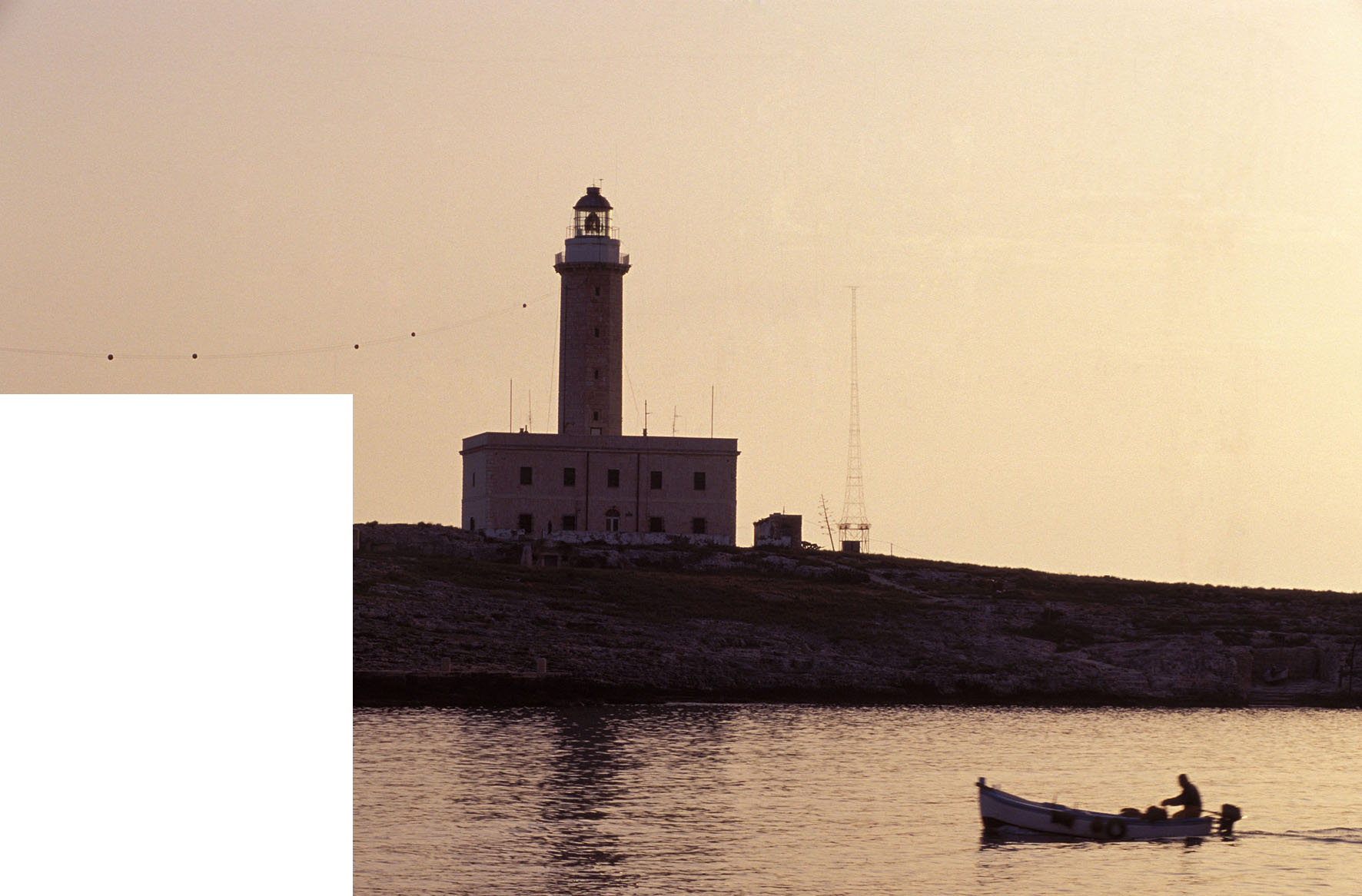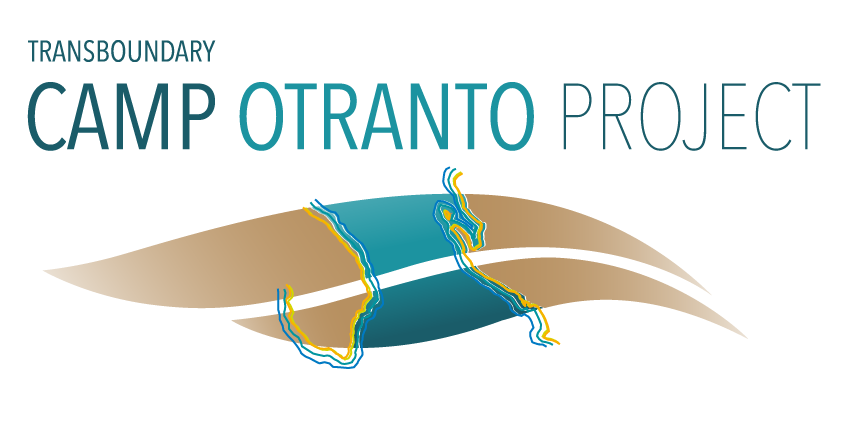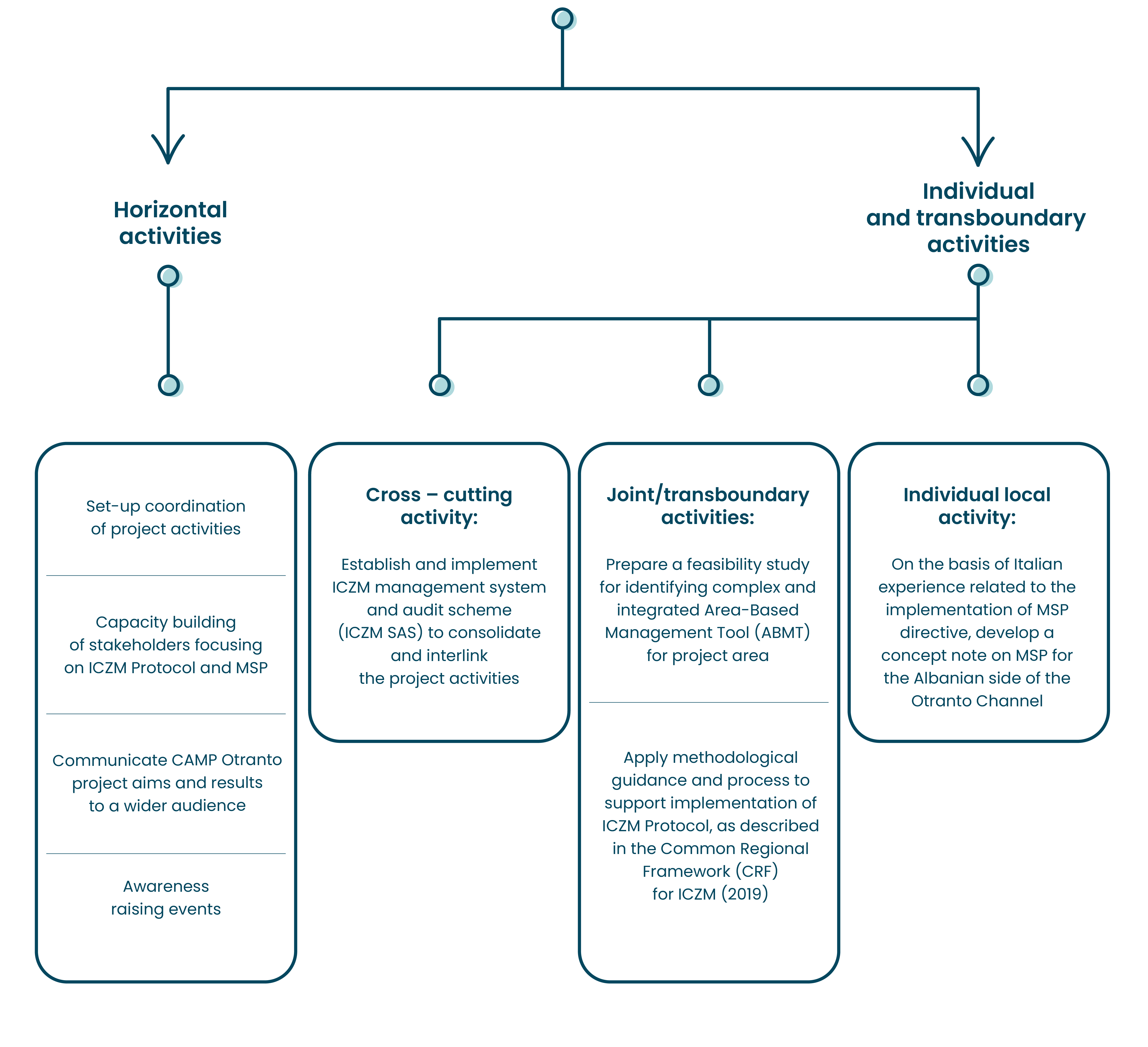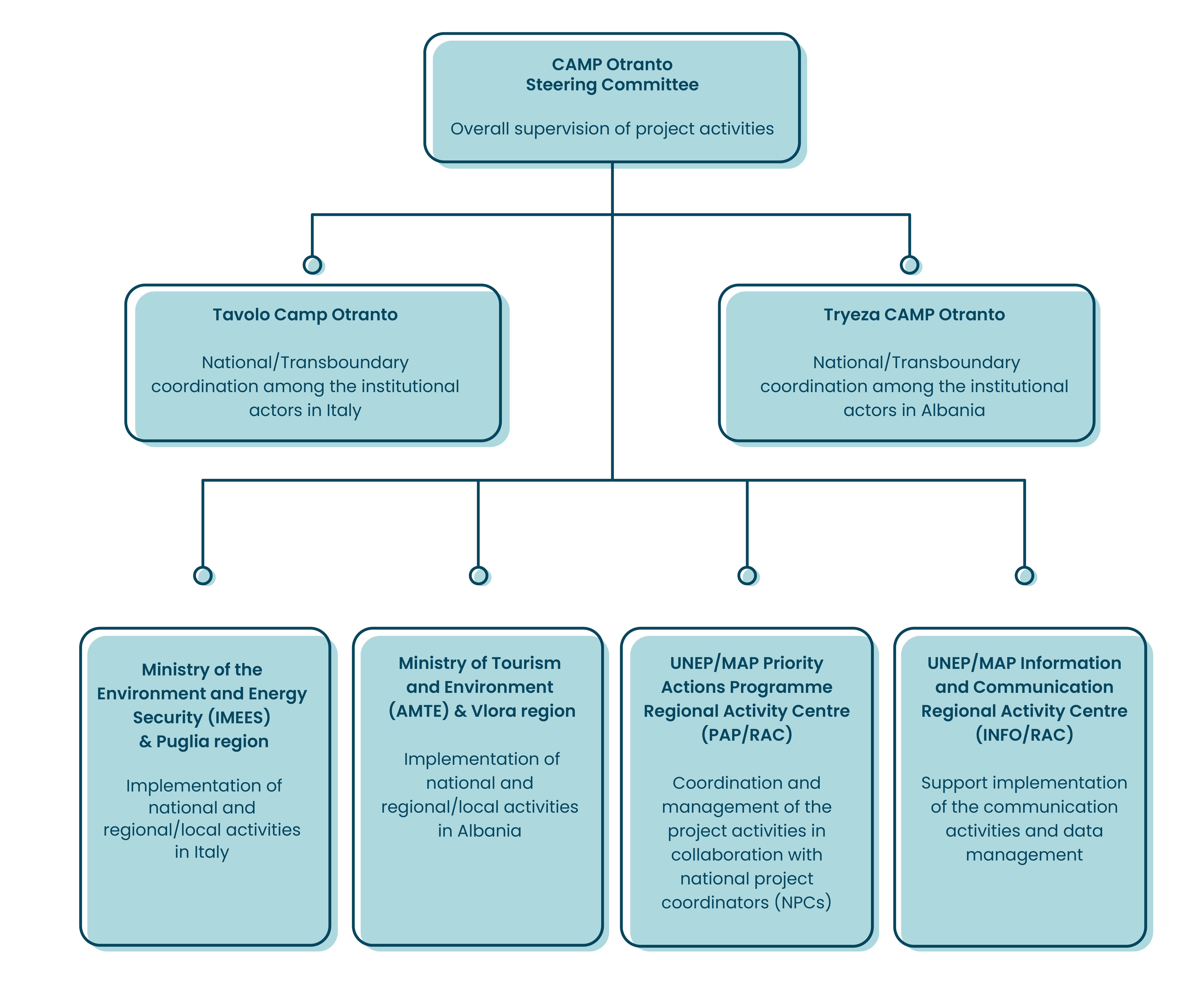01
Transboundary
CAMP Otranto
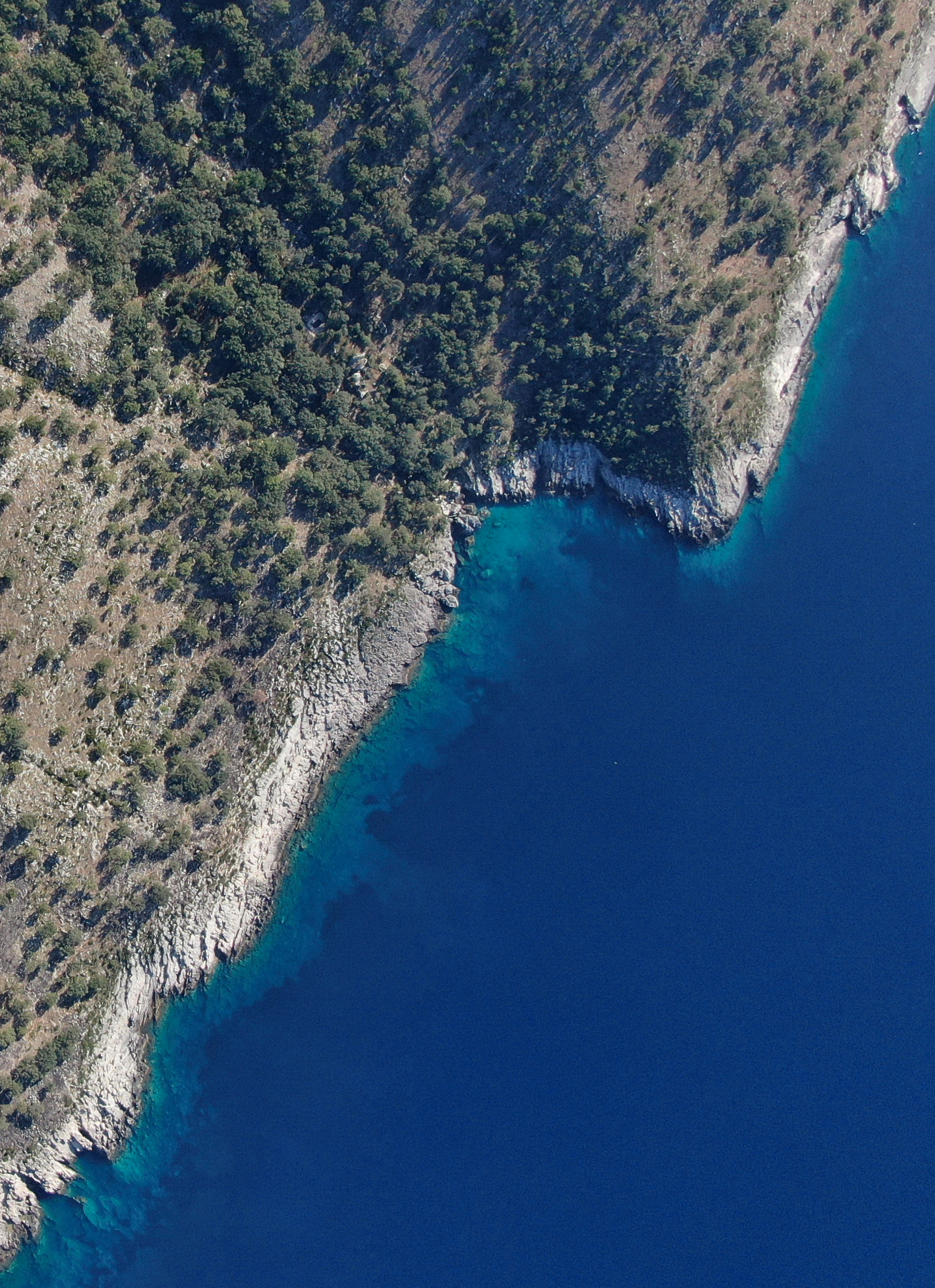
The Otranto approach to intercultural dialogue and effective collaboration is a way forward to facing up to the triple planetary crisis of pollution, climate change and biodiversity loss.
Many of humanity’s current challenges for the sustainability of the global ocean are crucial to the health and development of communities and natural habitats in the Mediterranean. Success in this region will echo well beyond the South Adriatic, sending a message that we can work together for the common objective of protecting and living in harmony with the ocean and nature.
Partner Benefits
Joint development of additional tools for the management of coastal and marine ecosystems, in the transboundary context
The opportunity to learn new methodologies with reference to the inter-sectoral and inter-level planning and the strengthening of inter-institutional coordination
Use the findings of project approaches towards ICZM and MSP for the conservation policies and management
What we want
to achieve
The main objective of the CAMP Otranto project is to support the integrated management of coastal zones by implementing the ICZM Protocol and Marine Spatial Planning (MSP) at a transboundary scale
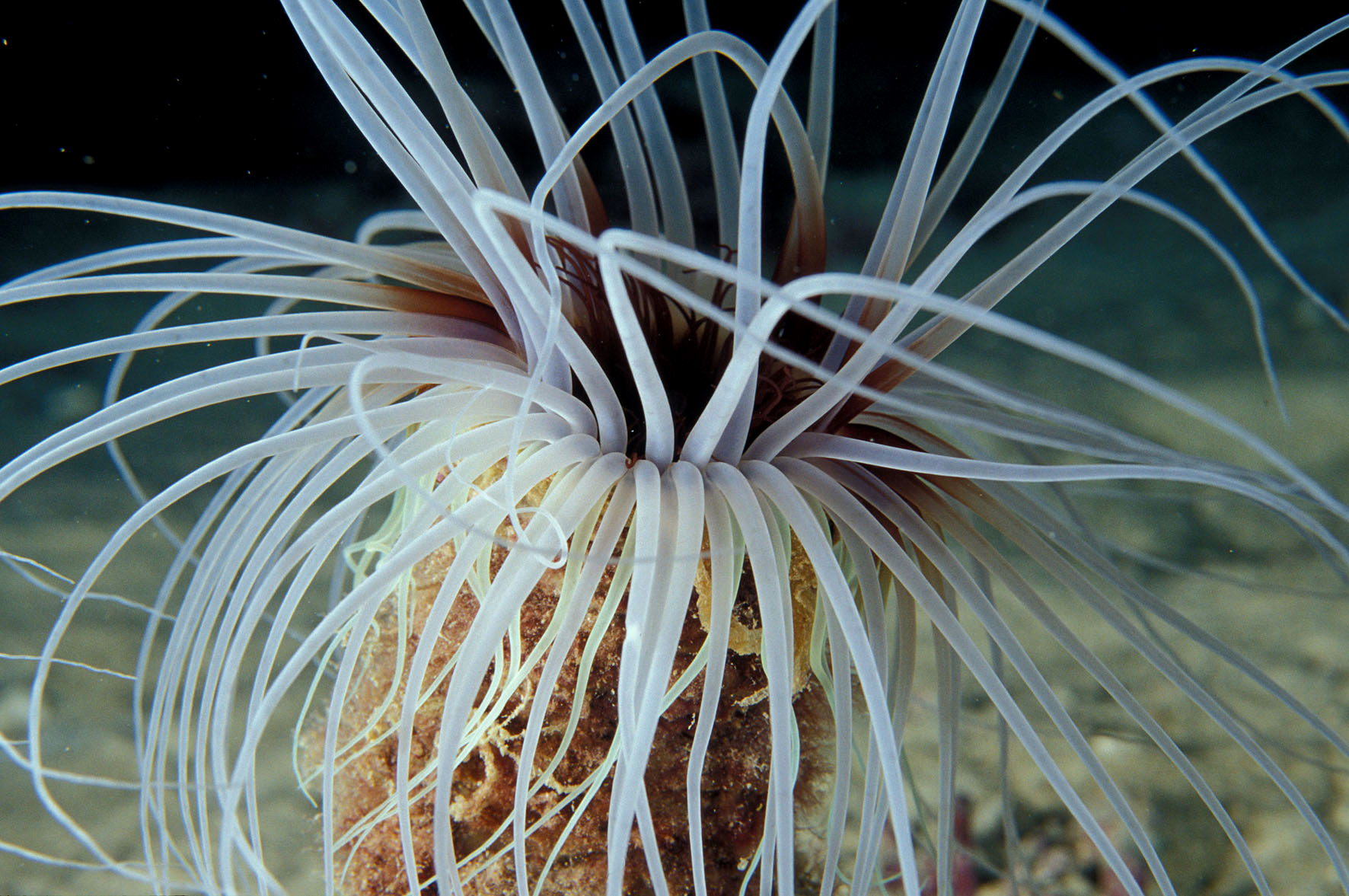
03
Otranto Coastal and
Marine Environment Challenges
By contributing to the development, operation and sharing know-how and best practices on sustainable coastal management, the project will tackle the prevalent environmental challenges

REDUCING POLLUTION
Especially marine litter

IMPROVING SUSTAINABLE TOURISM
Sharing best practice
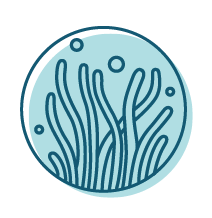
PRESERVING BIODIVERSITY
Focusing on coastal and marine ecosystems
Keeping it local
increases our reach
Each country tailors to the needs of local stakeholders and communities in how they employ transboundary activities and exchange experiences to support the implementation of the Barcelona Convention, with ICZM and MSP, as well as the related EU instruments
03
Our methodology
in a nutshell
Analysis of relevant information layers plays a fundamental role in supporting decision-making by evaluating alternate scenarios, in predicting and mitigating impacts and designing effective coastal zone interventions.
Discover our key tools!

Area Based
Management Tools
An approach that enables the application of management measures to a specific area to achieve a desired policy outcome

Marine
Spatial Planning
Public process of analysing and allocating the spatial and temporal distribution of human activities in marine areas to achieve ecological, economic and social objectives that have been specified through a political process

System
and Audit Scheme
A system to assess, validate or certificate, and continuously improve local process and initiatives in the coastal zones, in accordance with the ICZM Protocol
04
Who is behind
CAMP Otranto?
The project is coordinated by PAP/RAC with the support of INFO/RAC and national project coordinators. Implementation is overseen by the CAMP Otranto Steering Committee, with the particular involvement of the Albanian Ministry of Tourism and Environment (AMTE), and the Italian Ministry of the Environment and Energy Security (IMEES) along with Vlora region (AL) and Puglia region (IT).
CAMP will help Albania and Italy on their path towards sustainable development by implementing the Integrated Coastal Zone Management (ICZM) approach at pilot sites and offering opportunities to share transboundary know-how.
